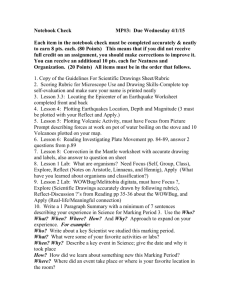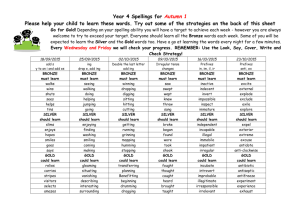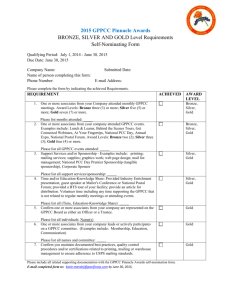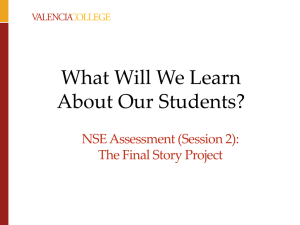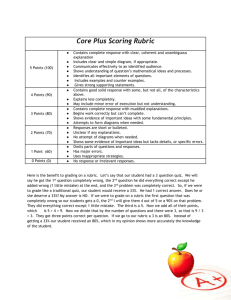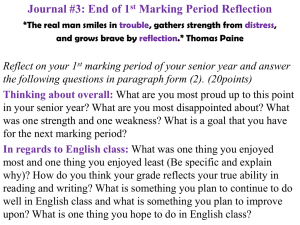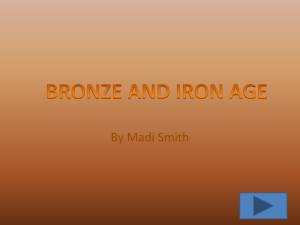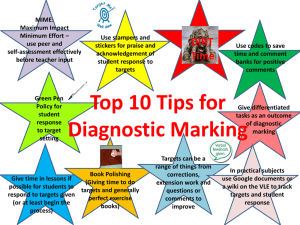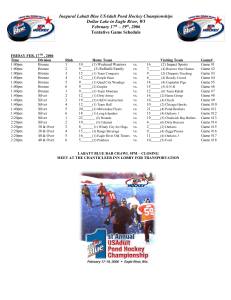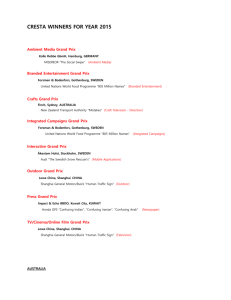Changemaker assessment final - The University of Northampton blogs
advertisement
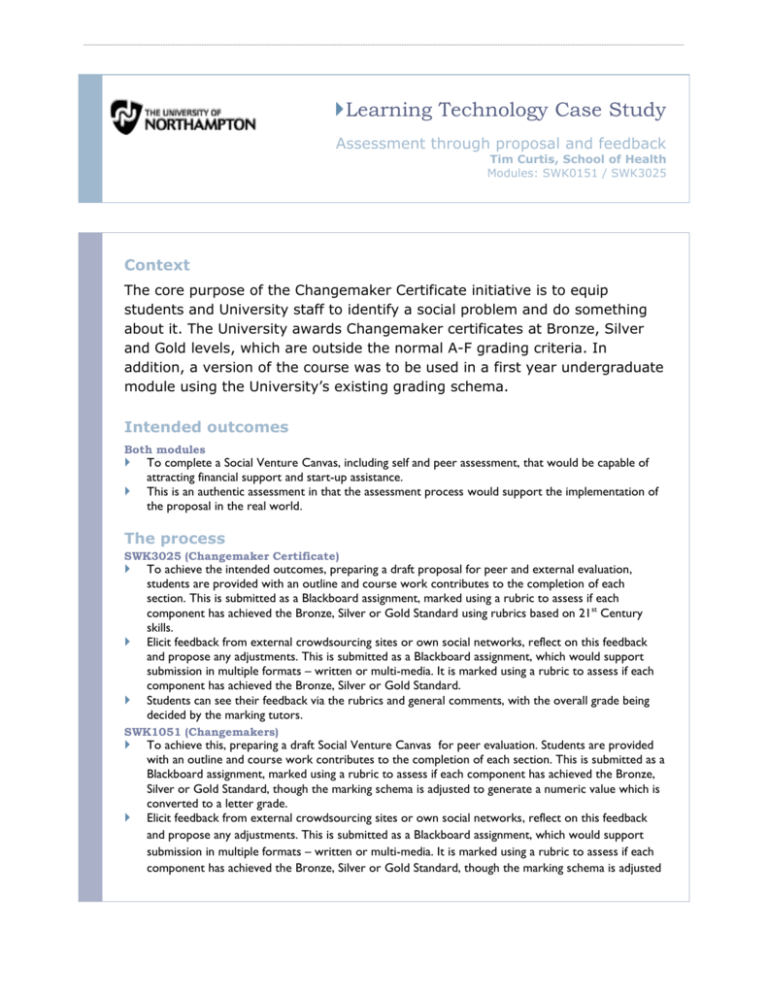
Learning Technology Case Study Assessment through proposal and feedback Tim Curtis, School of Health Modules: SWK0151 / SWK3025 Context The core purpose of the Changemaker Certificate initiative is to equip students and University staff to identify a social problem and do something about it. The University awards Changemaker certificates at Bronze, Silver and Gold levels, which are outside the normal A-F grading criteria. In addition, a version of the course was to be used in a first year undergraduate module using the University’s existing grading schema. Intended outcomes Both modules To complete a Social Venture Canvas, including self and peer assessment, that would be capable of attracting financial support and start-up assistance. This is an authentic assessment in that the assessment process would support the implementation of the proposal in the real world. The process SWK3025 (Changemaker Certificate) To achieve the intended outcomes, preparing a draft proposal for peer and external evaluation, students are provided with an outline and course work contributes to the completion of each section. This is submitted as a Blackboard assignment, marked using a rubric to assess if each component has achieved the Bronze, Silver or Gold Standard using rubrics based on 21st Century skills. Elicit feedback from external crowdsourcing sites or own social networks, reflect on this feedback and propose any adjustments. This is submitted as a Blackboard assignment, which would support submission in multiple formats – written or multi-media. It is marked using a rubric to assess if each component has achieved the Bronze, Silver or Gold Standard. Students can see their feedback via the rubrics and general comments, with the overall grade being decided by the marking tutors. SWK1051 (Changemakers) To achieve this, preparing a draft Social Venture Canvas for peer evaluation. Students are provided with an outline and course work contributes to the completion of each section. This is submitted as a Blackboard assignment, marked using a rubric to assess if each component has achieved the Bronze, Silver or Gold Standard, though the marking schema is adjusted to generate a numeric value which is converted to a letter grade. Elicit feedback from external crowdsourcing sites or own social networks, reflect on this feedback and propose any adjustments. This is submitted as a Blackboard assignment, which would support submission in multiple formats – written or multi-media. It is marked using a rubric to assess if each component has achieved the Bronze, Silver or Gold Standard, though the marking schema is adjusted Assessment through proposal and feedback: Learning Technology Case Study to generate a numeric value which is converted to a letter grade. Students can see their feedback though general comments against a calculated column, with the overall grade calculated as a 60/40 weighted score. The benefits & challenges The assessment is a cumulative piece of work, so students do not face a mountain of work before submitting each component. Both assessment items include a reflective element. Marking by rubric is very suitable for larger cohorts and maintains consistency. Can be adapted for group, rather than individual, submissions. Two modules with slightly different objectives can re-use much of the same materials and marking procedures. Encouraging students to work throughout the course rather that cramming for deadlines is difficult and progress needs to be monitored closely during the module – in this case, submissions to journal entries are regularly checked. For SWK1051, the calculated value is subject to grade boundary problems, A careful check is needed before releasing results. Key points Page 2 An authentic assessment which is capable of producing a tangible benefit to Society, A scalable assessment that can be implemented in very large cohorts. Adaptable for Distance / Blended Learning. Has potential for group assignments.
